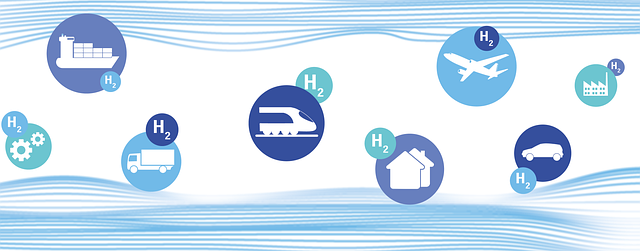
Is hydrogen the lightweight champion?
Technologies and innovations will help drive the country to net zero. One of these is hydrogen, says Sam Cranston.
Perhaps the most underrated tool in our collective arsenal towards net zero, is hydrogen. Research from Copper Consultancy’s recent Public attitudes to low carbon energy generation report showed a general lack of awareness towards hydrogen within the general public, with 58% of respondees having little to no awareness of the technology.
The lack of awareness towards hydrogen as a form of low carbon energy can breed apprehension and that apprehension can rapidly spread into distrust and rejection. Two in one can see the collapse of a project – no matter how green the benefits may be. Promisingly, our report has found that while 51% of respondents are apathetic towards hydrogen, just 15% view it as dangerous. This shows that gaining public support is achievable for the gas, which has been touted as a key player in the UK’s energy mix.
Hydrogen’s role within the UK, as the transition to net zero begins, will increasingly be focused on its use within heating homes and powering transport such as buses. Unlike the traditional fuels used to power transport and heat homes, hydrogen itself produces zero emissions. In fact, during combustion, hydrogen’s outputs are water and heat, making it ideal to heat homes.
The challenge comes from its production, with the most common form of producing hydrogen resulting in the release of CO2 from methane, as well as a high cost and limited efficacy. This can be offset, however, as technology improves through investment and research, and when combined with carbon-capture technology. Thus, placing hydrogen at the forefront of the UK’s renewable energy, net zero package.
Unsurprisingly, public attitudes towards net zero technologies and green energy show widespread support, but what is key is that this support requires context. People have heard ad nauseam about the need for low carbon and the essential switch to net zero, but as it comes into fruition in the form of physical infrastructure, there needs to be clear understanding of the benefits, the risks and overall – how this change will affect society and the people in it.
Around 62% of people think that the UK should be a world leader in low carbon innovation and 62% support investment in homegrown technology. What’s clear is that the public don’t just want a cleaner, greener future – they want this to come hand in hand with a boost to homegrown jobs, technologies and our historic manufacturing sector. This demand from the UK public combined with better education on hydrogen energy creates a recipe for net zero success.
As the drive to net zero takes centre and commanding stage on the UK’s agenda, the rollout of new technologies and resources in energy generation seems to be picking up at an ever-increasing pace. Whilst hydrogen and other low carbon energy generation is a critical component in the road to net zero, we need to make sure that we are taking the public on that rapid road with us, and that they have a clear understanding of the technologies that are helping to drive that journey.
The government and the sector needs to not only continue to harness public support, but to also bolster it with a clear understanding of not just the technologies and their environmental benefits, but the benefits for everyday communities.
Sam Cranston is director, energy infrastructure, at Copper Consultancy.
Click here to download the report, Public attitudes to low carbon energy generation.
End.
Green Infrastructure Week curates’ content from the entire ecosystem around green infrastructure from government and NGOs to respected commentators. We are partners with Infrastructure Intelligence who has supplied this article.
Feel free to share this content with your social media community using #GreenInfrastructureWeek
During Green Infrastructure Week we will host a programme of live and exclusive free-to-attend webinars.